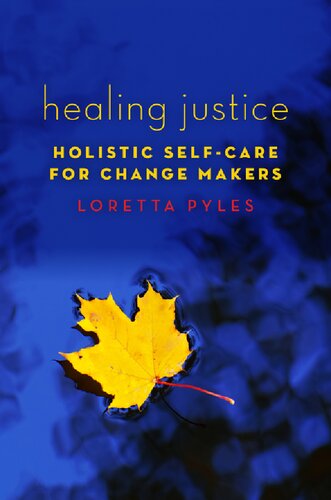

Most ebook files are in PDF format, so you can easily read them using various software such as Foxit Reader or directly on the Google Chrome browser.
Some ebook files are released by publishers in other formats such as .awz, .mobi, .epub, .fb2, etc. You may need to install specific software to read these formats on mobile/PC, such as Calibre.
Please read the tutorial at this link: https://ebookbell.com/faq
We offer FREE conversion to the popular formats you request; however, this may take some time. Therefore, right after payment, please email us, and we will try to provide the service as quickly as possible.
For some exceptional file formats or broken links (if any), please refrain from opening any disputes. Instead, email us first, and we will try to assist within a maximum of 6 hours.
EbookBell Team

4.4
32 reviewsIn the context of multiple forms of global economic, social, and cultural oppression, along with intergenerational trauma, burnout, and public services retrenchment, this book offers a framework and set of inquiries and practices for social workers, activists, community organizers, counselors, and other helping professionals. Healing justice, a term that has emerged in social movements in the last decade, is taught as a practice of connecting to the whole self, what many are conditioned to ignore -- the body, mind-heart, spirit, community, and natural world.
Drawing from the East-West modalities of mindfulness, yoga, and Ayurveda, the author introduces six capabilities -- mindfulness and compassion; critical thinking and curiosity; and effort and equanimity -- which can guide practitioners on a transformative and empowering journey that can ultimately make them and their colleagues more effective in their work. Using case studies, critical analysis, and skill sharing, self-care is presented as an act of resistance to disconnection, marginalization, and internalized oppression. Healing justice is a trauma-informed practice that empowers social practitioners to cultivate the conditions that might allow them to feel more connected to themselves, their clients, colleagues, and communities.
The book also engages critically with self-care practices, including investigation into the science of mindfulness, cultural appropriation, and the commodification of self-care. The message is clear that mindfulness-based practices are not a panacea for personal, inter-personal, or political problems. But, they can put practitioners in a more authentic and powerful place to work from, which is particularly important in a world where there is more connection to technology, ideologies, and people who share one's beliefs, and less connection to the natural world, people who are different, and the parts of oneself that one tends to reject. The book also offers suggestions for how to share self-care practices with community members who have less access to wellness.